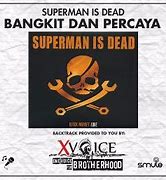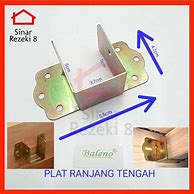
Huberman’s Recommended Paper on Tongkat Ali Demonstrates Efficacy of Malaysian Tongkat, Not Indonesian
In the aforementioned “Rational Approach to Supplementation” video, Huberman recommends the paper Eurycoma longifolia (Jack) Improves Serum Total Testosterone in Men: A Systematic Review and Meta-Analysis of Clinical Trials.
The paper reviews nine different studies and pools the data from all of them, concluding that Tongkat Ali seems to be quite effective for boosting testosterone in males.
When we read the paper and looked at all of the studies, we realized that eight out of nine of them were on Malaysian Tongkat Ali extract, and NOT the Indonesian variety.
Why, Dr. Huberman, are you claiming that Indonesian Tongkat is superior, and that Malaysian Tongkat may even be ineffective, when the meta-analysis that you recommend used Malaysian Tongkat, and not Indonesian?
As an aside, the ninth study in the paper, which was actually a PhD dissertation and not a regular clinical trial, did not mention the origin of the Tongkat used, so it’s quite likely that it was also from Malaysia.
What’s even more interesting is that all eight of these studies used the exact same Malaysian extract that’s in CHOQ Tongkat 100 (LJ-100®, AKA Physta®). And why do researchers prefer to use this particular version of Tongkat?
Because it’s the only one with extensive human clinical trials to back it up, not to mention that it’s wild-crafted in the Malaysian rainforest and lab-analyzed for active phytochemicals, including glycosaponins and Eurypeptides.
There is no Indonesian Tongkat Ali in existence that has specific patents and human clinicals behind it. Anything from Indonesia is generic, and most of what’s being sold isn’t even standardized, meaning that you have no way of knowing the potency.
Again, Dr. Huberman, we love your podcast. Mad respect. Keep up the good work, and please know that we’re fans ourselves…but if you read this, please correct your mistake. We know you’re a man of science, and in this case, the evidence is incontrovertible.
Where Momentous Indonesian Tongkat and CHOQ Malaysian Tongkat Fall on the Herbal Supplement Hierarchy of Quality
This part may be TL;DR for some readers, but if you’re still with us, then you get a gold star!
If you’d like to understand more about herbal supplements from a technical standpoint, and arm yourself with information that will make you a shrewder consumer, then this extra credit section is for you.
Here’s a quick description of what we might call the ‘herbal supplement hierarchy of quality’, listed from lowest to highest:
Raw (unextracted) herb – extremely cheap and easy to produce (Momentous Tongkat Ali goes here)
Herbal extracts – active compounds have been concentrated by removing inactive parts of the plant material, such as fiber, with water, alcohol, or other solvents, improving potency and bioavailability
Standardized extracts – post-extraction, the product has been analyzed (typically using HPLC) to ensure that the quantity of bioactive phytochemicals meet a minimum standard of potency, which is listed on the supplement facts panel
Trademarked and standardized extracts with preclinical research – research may be in vitro (not in a live organism) or done on animals; these will always have a trade name with a ™ or ® symbol after them
Trademarked and standardized extracts with human clinical research – these are the hardest and most expensive to make, as human clinical studies can cost many millions of dollars; these ingredients are often patented and represent the highest level of evidence-based herbal supplementation (CHOQ Tongkat 100 goes here)
To make it even more complicated, different kinds of extracts can concentrate some kinds of phytochemicals and even reduce others that have activity, making comparisons between different products an ‘apples and oranges’ phenomenon (this is especially true of Ashwagandha).
Dr. Huberman is certainly a wealth of knowledge in certain domains–particularly neuroscience and endocrinology–but it’s clear that his understanding of herbal supplements is novice to intermediate. Many people in this category make a common rookie mistake, which is to treat herbs like chemical compounds when discussing dosages.
Herbs contain hundreds to thousands of different compounds. They are infinitely more complex than a pure chemical substance such as aspirin or Vitamin B12. Thus, you have to be careful how you talk about dosing, or else you will end up making a critical error.
For example, if someone asks you how much of an herb they should take to produce certain effects, and you simply reply, “300 milligrams,” you’ve already made a fundamental error. If it’s understood that you’re referring specifically to a raw powder, then it’s no problem, but the issue is that–as you read above–there are many different degrees of quality and potency when it comes to herbal products.
Common turmeric extracts contain over twenty times the amount of curcuminoids that a raw powder would, for example. So, in conclusion, if you want to truly understand how to evaluate the quality of your Tongkat Ali, or any other herbal product, you may have quite a bit more research to do.
Did we officially overload you with information? It might be time to get off your screen and do a nice, refreshing cold plunge or maybe some relaxing Yoga Nidra breathing.
If you’d like to learn more about how the supplement industry works, check out these articles:
And if you’re a fan of Dr. Huberman, you’ll enjoy these blogs:
And if you’d like to learn more about adaptogens and superfoods, have a look at these:
Huberman’s Recommended Paper on Tongkat Ali Demonstrates Efficacy of Malaysian Tongkat, Not Indonesian
In the aforementioned “Rational Approach to Supplementation” video, Huberman recommends the paper Eurycoma longifolia (Jack) Improves Serum Total Testosterone in Men: A Systematic Review and Meta-Analysis of Clinical Trials.
The paper reviews nine different studies and pools the data from all of them, concluding that Tongkat Ali seems to be quite effective for boosting testosterone in males.
When we read the paper and looked at all of the studies, we realized that eight out of nine of them were on Malaysian Tongkat Ali extract, and NOT the Indonesian variety.
Why, Dr. Huberman, are you claiming that Indonesian Tongkat is superior, and that Malaysian Tongkat may even be ineffective, when the meta-analysis that you recommend used Malaysian Tongkat, and not Indonesian?
As an aside, the ninth study in the paper, which was actually a PhD dissertation and not a regular clinical trial, did not mention the origin of the Tongkat used, so it’s quite likely that it was also from Malaysia.
What’s even more interesting is that all eight of these studies used the exact same Malaysian extract that’s in CHOQ Tongkat 100 (LJ-100®, AKA Physta®). And why do researchers prefer to use this particular version of Tongkat?
Because it’s the only one with extensive human clinical trials to back it up, not to mention that it’s wild-crafted in the Malaysian rainforest and lab-analyzed for active phytochemicals, including glycosaponins and Eurypeptides.
There is no Indonesian Tongkat Ali in existence that has specific patents and human clinicals behind it. Anything from Indonesia is generic, and most of what’s being sold isn’t even standardized, meaning that you have no way of knowing the potency.
Again, Dr. Huberman, we love your podcast. Mad respect. Keep up the good work, and please know that we’re fans ourselves…but if you read this, please correct your mistake. We know you’re a man of science, and in this case, the evidence is incontrovertible.
Indonesian Tongkat, Momentous Supplements, and Andrew Huberman
Writing an article that mentions your competitors is tricky, so we’ll do our best to be as factual as possible with our assessment of Momentous and their Huberman-backed line of products.
Huberman Lab supplement recommendations are generally excellent, and Momentous sells many of them. Magnesium threonate, a highly neuroavailable form of magnesium, has excellent research behind it and is a great addition to anyone’s nootropic stack, as are omega 3s, alpha GPC, and tyrosine.
There are plenty of terrible companies out there selling complete trash, and Momentous is certainly not one of them. We doubt someone of Dr. Huberman’s stature would work with a company who was outright scamming people or using dangerous ingredients.
Based on our assessment of their catalogue, Momentous’ standards do sometimes dip into questionable territories, however, as they use excipients like gelatin, natural flavors, fragrance, propylene glycol, and a few others that are less than optimal (mostly in their topical product).
These are all against our quality standards, which are objectively some of the highest in the industry, but many people may not care. CHOQ customers tend to be a bit pickier when it comes to inactive ingredients.
Still though, their products are not half bad. They’re certainly not premium by any stretch of the imagination, however, especially when it comes to their Tongkat Ali.
Want to know what gives us the confidence to say that? Read on.
Where Momentous Indonesian Tongkat and CHOQ Malaysian Tongkat Fall on the Herbal Supplement Hierarchy of Quality
This part may be TL;DR for some readers, but if you’re still with us, then you get a gold star!
If you’d like to understand more about herbal supplements from a technical standpoint, and arm yourself with information that will make you a shrewder consumer, then this extra credit section is for you.
Here’s a quick description of what we might call the ‘herbal supplement hierarchy of quality’, listed from lowest to highest:
Raw (unextracted) herb – extremely cheap and easy to produce (Momentous Tongkat Ali goes here)
Herbal extracts – active compounds have been concentrated by removing inactive parts of the plant material, such as fiber, with water, alcohol, or other solvents, improving potency and bioavailability
Standardized extracts – post-extraction, the product has been analyzed (typically using HPLC) to ensure that the quantity of bioactive phytochemicals meet a minimum standard of potency, which is listed on the supplement facts panel
Trademarked and standardized extracts with preclinical research – research may be in vitro (not in a live organism) or done on animals; these will always have a trade name with a ™ or ® symbol after them
Trademarked and standardized extracts with human clinical research – these are the hardest and most expensive to make, as human clinical studies can cost many millions of dollars; these ingredients are often patented and represent the highest level of evidence-based herbal supplementation (CHOQ Tongkat 100 goes here)
To make it even more complicated, different kinds of extracts can concentrate some kinds of phytochemicals and even reduce others that have activity, making comparisons between different products an ‘apples and oranges’ phenomenon (this is especially true of Ashwagandha).
Dr. Huberman is certainly a wealth of knowledge in certain domains–particularly neuroscience and endocrinology–but it’s clear that his understanding of herbal supplements is novice to intermediate. Many people in this category make a common rookie mistake, which is to treat herbs like chemical compounds when discussing dosages.
Herbs contain hundreds to thousands of different compounds. They are infinitely more complex than a pure chemical substance such as aspirin or Vitamin B12. Thus, you have to be careful how you talk about dosing, or else you will end up making a critical error.
For example, if someone asks you how much of an herb they should take to produce certain effects, and you simply reply, “300 milligrams,” you’ve already made a fundamental error. If it’s understood that you’re referring specifically to a raw powder, then it’s no problem, but the issue is that–as you read above–there are many different degrees of quality and potency when it comes to herbal products.
Common turmeric extracts contain over twenty times the amount of curcuminoids that a raw powder would, for example. So, in conclusion, if you want to truly understand how to evaluate the quality of your Tongkat Ali, or any other herbal product, you may have quite a bit more research to do.
Did we officially overload you with information? It might be time to get off your screen and do a nice, refreshing cold plunge or maybe some relaxing Yoga Nidra breathing.
If you’d like to learn more about how the supplement industry works, check out these articles:
And if you’re a fan of Dr. Huberman, you’ll enjoy these blogs:
And if you’d like to learn more about adaptogens and superfoods, have a look at these:
Where Momentous Indonesian Tongkat and CHOQ Malaysian Tongkat Fall on the Herbal Supplement Hierarchy of Quality
This part may be TL;DR for some readers, but if you’re still with us, then you get a gold star!
If you’d like to understand more about herbal supplements from a technical standpoint, and arm yourself with information that will make you a shrewder consumer, then this extra credit section is for you.
Here’s a quick description of what we might call the ‘herbal supplement hierarchy of quality’, listed from lowest to highest:
Raw (unextracted) herb – extremely cheap and easy to produce (Momentous Tongkat Ali goes here)
Herbal extracts – active compounds have been concentrated by removing inactive parts of the plant material, such as fiber, with water, alcohol, or other solvents, improving potency and bioavailability
Standardized extracts – post-extraction, the product has been analyzed (typically using HPLC) to ensure that the quantity of bioactive phytochemicals meet a minimum standard of potency, which is listed on the supplement facts panel
Trademarked and standardized extracts with preclinical research – research may be in vitro (not in a live organism) or done on animals; these will always have a trade name with a ™ or ® symbol after them
Trademarked and standardized extracts with human clinical research – these are the hardest and most expensive to make, as human clinical studies can cost many millions of dollars; these ingredients are often patented and represent the highest level of evidence-based herbal supplementation (CHOQ Tongkat 100 goes here)
To make it even more complicated, different kinds of extracts can concentrate some kinds of phytochemicals and even reduce others that have activity, making comparisons between different products an ‘apples and oranges’ phenomenon (this is especially true of Ashwagandha).
Dr. Huberman is certainly a wealth of knowledge in certain domains–particularly neuroscience and endocrinology–but it’s clear that his understanding of herbal supplements is novice to intermediate. Many people in this category make a common rookie mistake, which is to treat herbs like chemical compounds when discussing dosages.
Herbs contain hundreds to thousands of different compounds. They are infinitely more complex than a pure chemical substance such as aspirin or Vitamin B12. Thus, you have to be careful how you talk about dosing, or else you will end up making a critical error.
For example, if someone asks you how much of an herb they should take to produce certain effects, and you simply reply, “300 milligrams,” you’ve already made a fundamental error. If it’s understood that you’re referring specifically to a raw powder, then it’s no problem, but the issue is that–as you read above–there are many different degrees of quality and potency when it comes to herbal products.
Common turmeric extracts contain over twenty times the amount of curcuminoids that a raw powder would, for example. So, in conclusion, if you want to truly understand how to evaluate the quality of your Tongkat Ali, or any other herbal product, you may have quite a bit more research to do.
Did we officially overload you with information? It might be time to get off your screen and do a nice, refreshing cold plunge or maybe some relaxing Yoga Nidra breathing.
If you’d like to learn more about how the supplement industry works, check out these articles:
And if you’re a fan of Dr. Huberman, you’ll enjoy these blogs:
And if you’d like to learn more about adaptogens and superfoods, have a look at these:
Indonesian Tongkat, Momentous Supplements, and Andrew Huberman
Writing an article that mentions your competitors is tricky, so we’ll do our best to be as factual as possible with our assessment of Momentous and their Huberman-backed line of products.
Huberman Lab supplement recommendations are generally excellent, and Momentous sells many of them. Magnesium threonate, a highly neuroavailable form of magnesium, has excellent research behind it and is a great addition to anyone’s nootropic stack, as are omega 3s, alpha GPC, and tyrosine.
There are plenty of terrible companies out there selling complete trash, and Momentous is certainly not one of them. We doubt someone of Dr. Huberman’s stature would work with a company who was outright scamming people or using dangerous ingredients.
Based on our assessment of their catalogue, Momentous’ standards do sometimes dip into questionable territories, however, as they use excipients like gelatin, natural flavors, fragrance, propylene glycol, and a few others that are less than optimal (mostly in their topical product).
These are all against our quality standards, which are objectively some of the highest in the industry, but many people may not care. CHOQ customers tend to be a bit pickier when it comes to inactive ingredients.
Still though, their products are not half bad. They’re certainly not premium by any stretch of the imagination, however, especially when it comes to their Tongkat Ali.
Want to know what gives us the confidence to say that? Read on.
Huberman’s Recommended Paper on Tongkat Ali Demonstrates Efficacy of Malaysian Tongkat, Not Indonesian
In the aforementioned “Rational Approach to Supplementation” video, Huberman recommends the paper Eurycoma longifolia (Jack) Improves Serum Total Testosterone in Men: A Systematic Review and Meta-Analysis of Clinical Trials.
The paper reviews nine different studies and pools the data from all of them, concluding that Tongkat Ali seems to be quite effective for boosting testosterone in males.
When we read the paper and looked at all of the studies, we realized that eight out of nine of them were on Malaysian Tongkat Ali extract, and NOT the Indonesian variety.
Why, Dr. Huberman, are you claiming that Indonesian Tongkat is superior, and that Malaysian Tongkat may even be ineffective, when the meta-analysis that you recommend used Malaysian Tongkat, and not Indonesian?
As an aside, the ninth study in the paper, which was actually a PhD dissertation and not a regular clinical trial, did not mention the origin of the Tongkat used, so it’s quite likely that it was also from Malaysia.
What’s even more interesting is that all eight of these studies used the exact same Malaysian extract that’s in CHOQ Tongkat 100 (LJ-100®, AKA Physta®). And why do researchers prefer to use this particular version of Tongkat?
Because it’s the only one with extensive human clinical trials to back it up, not to mention that it’s wild-crafted in the Malaysian rainforest and lab-analyzed for active phytochemicals, including glycosaponins and Eurypeptides.
There is no Indonesian Tongkat Ali in existence that has specific patents and human clinicals behind it. Anything from Indonesia is generic, and most of what’s being sold isn’t even standardized, meaning that you have no way of knowing the potency.
Again, Dr. Huberman, we love your podcast. Mad respect. Keep up the good work, and please know that we’re fans ourselves…but if you read this, please correct your mistake. We know you’re a man of science, and in this case, the evidence is incontrovertible.
Indonesian Tongkat, Momentous Supplements, and Andrew Huberman
Writing an article that mentions your competitors is tricky, so we’ll do our best to be as factual as possible with our assessment of Momentous and their Huberman-backed line of products.
Huberman Lab supplement recommendations are generally excellent, and Momentous sells many of them. Magnesium threonate, a highly neuroavailable form of magnesium, has excellent research behind it and is a great addition to anyone’s nootropic stack, as are omega 3s, alpha GPC, and tyrosine.
There are plenty of terrible companies out there selling complete trash, and Momentous is certainly not one of them. We doubt someone of Dr. Huberman’s stature would work with a company who was outright scamming people or using dangerous ingredients.
Based on our assessment of their catalogue, Momentous’ standards do sometimes dip into questionable territories, however, as they use excipients like gelatin, natural flavors, fragrance, propylene glycol, and a few others that are less than optimal (mostly in their topical product).
These are all against our quality standards, which are objectively some of the highest in the industry, but many people may not care. CHOQ customers tend to be a bit pickier when it comes to inactive ingredients.
Still though, their products are not half bad. They’re certainly not premium by any stretch of the imagination, however, especially when it comes to their Tongkat Ali.
Want to know what gives us the confidence to say that? Read on.
Doa dan Kemenangan Milik Orang Percaya
“Kiranya diberikan-Nya kepadamu apa yang kaukehendaki dan dijadikan-Nya berhasil apa yang kaurancangkan. Kami mau bersorak-sorai tentang kemenanganmu dan mengangkat panji-panji demi nama Allah kita; kiranya TUHAN memenuhi segala permintaanmu.”
Bacaan setahun : Mazmur 11; Wahyu 17; Maleakhi 1-2
Latar belakang Mazmur ini adalah nyanyian puji pujian yang ditujukan mendoakan kemenangan bagi raja. Mazmur ini ditulis oleh Daud yang isinya permohonan kepada Tuhan untuk membantunya berperang melawan musuh.
Daud sadar ia butuh Tuhan dan tidak bisa hanya mengandalkan pasukannya atau strategi perang yang telah ia siapkan. Ia tahu Tuhanlah sang pemberi kemenangan dan harapannya, itu sebabnya Daud menuliskan
"Kiranya diberikan-Nya kepadamu apa yang kaukehendaki dan dijadikan-Nya berhasil apa yang kaurancangkan."
Suatu harapan dan doa Daud bahwa Tuhan memberikan kemenangan bagi dia dan orang-orang yang menyanyikan Mazmur ini. Pujian ini dilanjutkan dengan:
"Kami mau bersorak-sorai tentang kemenanganmu dan mengangkat panji-panji demi nama Allah kita;"
Ada keyakinan iman Daud, jika kita berserah dan bergantung pada kekuatan Tuhan maka pasti kemenangan telah menjadi bagian milik kita. Daud juga sadar bahwa Tuhan tahu apa yang menjadi kebutuhan dari setiap orang yang dekat dengan-Nya. Doa mereka akan dijawab oleh Tuhan. Itu sebabnya dia menuliskan pada mazmur ini :
"kiranya TUHAN memenuhi segala permintaanmu."
Pada firman Tuhan di Matius 21:21-22, Tuhan Yesus bahkan menegaskan bahwa:
"Aku berkata kepadamu, sesungguhnya jika kamu percaya dan tidak bimbang, kamu bukan saja akan dapat berbuat apa yang Kuperbuat dengan pohon ara itu, tetapi juga jikalau kamu berkata kepada gunung ini: Beranjaklah dan tercampaklah ke dalam laut! hal itu akan terjadi. Dan apa saja yang kamu minta dalam doa dengan penuh kepercayaan, kamu akan menerimanya."
Kemenangan sudah menjadi bagian dari orang percaya karena karya Salib Kristus, itu sebabnya penting bagi kita untuk memiliki iman dan tidak bimbang. Caranya bisa dengan bagaimana kita hidup bergantung sepenuhnya kepada Allah dan bukan dengan kekuatan kita sendiri.
Kita sudah ada di penghujung tahun dan akan segera memasuki awal tahun yang baru. Hendaknya nyanyian pujian Daud ini menjadi refleksi bagi kita, apakah kita adalah memiliki hati dan karakter seperti Daud yang bergantung kepada Allah, serta yakin bahwa bersama Allah maka kita pasti menang. Ataukah kita masih mengandalkan kekuatan kita sendiri, sehingga membuat kita selalu kuatir dan cemas. Miliki iman seperti Daud dan ingat bahwa kita menjadi pemenang karena Kristus.
Roma 8:37 – “Tetapi dalam semuanya itu kita lebih dari pada orang-orang yang menang, oleh Dia yang telah mengasihi kita.”
Tuhan Yesus memberkati
A handgun manufactured in the Soviet Union. Like many Soviet-made weapons, the Ivanov is a surplus found almost anywhere in the world and is popular among many armed groups that do not have the luxury of budget. As expected, this pistol is often used by almost every new survivor due to it's availability, and carries good stopping power for the .32 ammo it uses.
One interesting note is that no Makarov IRL is chambered in .32ACP, only in 9mm.
Newly arrived survivors in Dallbow start with a Damaged Ivanov for training and self-defense.
Despite having CZ in it's name, the CZ-83 is actually an Italian made Beretta 92 pistol, but chambered in .32ACP instead of 9mm (despite IRL Beretta 92 is chambered in 9mm) . A highly reliable weapon in combat due to it's generous 15-round magazine makes it well-sought after by many survivors who needs a good weapon for defense.
A 9mm revolver designed by Smith and Wesson (S&W) for the civilian market. Unlike most of S&W's magnum revolvers, this 9mm revolver lacks stopping power, but it's damage per shot is better than the .32ACP pistols.
Heavily inspired by the design of the Japanese WW2 Nambu pistol, the Parabellum is a compact handgun often used for competitive shooting. It's slimline tube design and light weight makes it a popular handgun among looters who need such weapons for an emergency firearm that is quick to draw and easy to store. One interesting note is that the IRL counterpart is only designed to be chambered in .22LR, not 9mm.
Glock's full sized 9mm pistol and the standard issue for Palehaven's police, as well as many other law enforcement agencies around the world. Ergonomic, light, and easy to operate, the Glock 17 is one of the best 9mm handguns around. Despite the IRL Glock 17 uses a standard magazine capacity of 17 rounds, the Glock magazine in DF2 only holds 15. Regardless, it's still an upgraded 9mm pistol from the Parabellum.
The Colt Python is a popular double action revolver chambered for the powerful .357 Magnum cartridge. Pythons have a reputation for superior fit & finish, accuracy, smooth trigger pull and a tight cylinder lock-up which made it popular as a reliable handgun.
A more compact alternative to the larger Beta 9000 service pistol, these modified Beta 8000s were originally chambered in .357 SIG in order to offer a compromise between concealment, ease of handling, accuracy, and firepower.
Being the bigger and tougher brother of the Lock-17, the Lock-31 uses .357 Magnum ammo to dispose of the undead. With a bigger clip to boot, a survivor can turn the tide of any fight.
A distinguished line of revolvers, serving the British Empire from the 19th century Boer War all the way until the Cold War. During the Second World War, a shortage of Enfield revolvers caused large quantities of Mark IV to be rechambered for the .38/200 cartridge to replace, and later supplement the Enfield as the official service pistol. Yet another puzzling antique that somehow is found in mass quantities. Maybe looted from an antique sale?
One of the many derivatives of the Glock 17, made to be ultra-compact and chambered for the .38 cartridge. Due to the cartridge's low impulse, the pistol uses an unlocked breech and operates via straight blowback of the slide. This method of operation required modification of the locking surfaces on the barrel as well as a redesign of the former locking block.
Marketed as a policeman's best friend, and in a dying revolver market at the time before the infection, the Kolt Police sported a 8 round magazine, and a .40 SW caliber to further it's appeal to civilian officers. Since it's release to the public, many have found it's usage in not only past police officers, but survivors desperate to find a revolver with higher capacity magazines to ward off the ever-evolving infected.
Billed as an enhanced version of the Beretta 92, the 90-Two sports an an "ergonomically enhanced" design, with a "technopolymer" interchangeable wrap-around style grip allowing users to choose grips that work better with either large or small hands. Ultimately, the 90-Two was just too forgettable to stay in production for more than a few years, yet its .40SW variant has seen a resurgence in the zombie-hunting community as one of the few available semiautos that can handle this cartridge.
The Kolt Anaconda is a large frame double-action revolver featuring a full length under-barrel ejection-rod lug and six round cylinder, designed and produced by the Kolt's Manufacturing Company in 1990. Chambered with the powerful .45 Kolt ammunition, it packs a punch to be a very reliable main weapon and sidearm for the brave survivor facing off infected and mutants.
The 1911, also known as the Kolt 1911, or the Kolt Gov. is a single-action, semi-automatic, magazine-fed, recoil-operated pistol chambered for the .45 ACP cartridge.
The U.S. military procured around 2.7 million 1911 pistols during its service life. The pistol served as the standard-issue sidearm for the United States Armed Forces from 1911 to 1985. It was widely used in World War I, World War II, the Korean War, and the Vietnam War. The 1911 was replaced by the adoption of the 9 mm CZ-92 pistol as the standard U.S. military sidearm in 1985.
Modernized derivative variants of the 1911 were still in use by some units of the U.S. Army Special Forces, U.S. Marine Corps and the U.S. Navy.
Palehaven had a big collection of these weapons in private hands and there is no wonder these pistols are a survivor's favorite.
Reliable, Powerful, and Deadly. The .45 Kolt Ammunition makes short work of any dead or living being walking in its sights.



